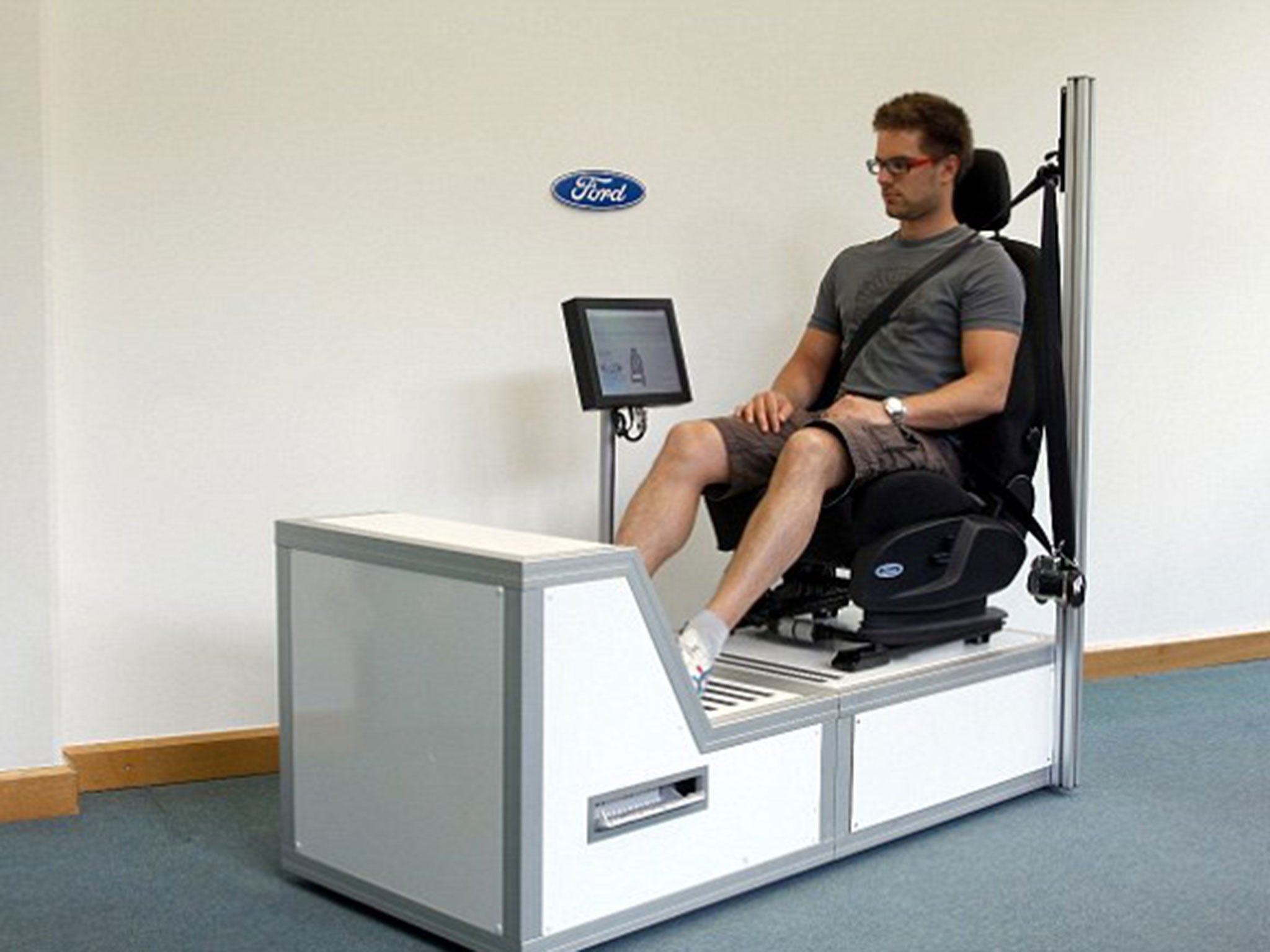Ford unveils a car seat which detects when a driver is having heart attack
The new technology has been developed at a time when the number of wealthy over-65s is growing rapidly

Your support helps us to tell the story
From reproductive rights to climate change to Big Tech, The Independent is on the ground when the story is developing. Whether it's investigating the financials of Elon Musk's pro-Trump PAC or producing our latest documentary, 'The A Word', which shines a light on the American women fighting for reproductive rights, we know how important it is to parse out the facts from the messaging.
At such a critical moment in US history, we need reporters on the ground. Your donation allows us to keep sending journalists to speak to both sides of the story.
The Independent is trusted by Americans across the entire political spectrum. And unlike many other quality news outlets, we choose not to lock Americans out of our reporting and analysis with paywalls. We believe quality journalism should be available to everyone, paid for by those who can afford it.
Your support makes all the difference.A car seat which detects when a driver is having heart attack and is able to take control to bring the vehicle to a safe stop has been developed by Ford.
The seat incorporates electrocardiograph technology and has been developed as the car industry seeks ways to maximise profits at a time when the number of wealthy over-65s is growing rapidly.
It is expected, once it does into full production, to appeal a generation that is determined to hang on to its car keys for as long as physically possible in retirement.
Ford and other car makers are increasingly aware that the time may not be far away when a 100-year-old driver is unexceptional and recognise that heart attacks and other medical conditions are likely to be a rising cause of accidents.
“We observe mega trends, and we observe what customers want and what they will spend their money on,” Pim van der Jagt, managing director of the Ford Research Centre, told the Financial Times. “One hundred-year-olds driving cars will not be abnormal in the future.”
Ford is yet to announce when the car seat will be made available but Mr van der Jagt said that it could take less than five years to put it into full production.
When the prototype was first unveiled Dr Achim Lindner, of the Ford Research Centre, said: "The system will be able to detect if someone is having a cardiovascular issue, for example a heart attack, and could also be used to detect the symptoms of other conditions such as high blood pressure or electrolyte imbalances. This not only benefits the driver; but also could make the roads safer for all users."
How it works:
Six electronic sensors have been embedded in the car seat and operate in tandem with an in-car camera to detect when a driver is having a heart attack.
The electrocardiograph sensors track the heart’s electrical pulses and can detect when they become irregular. The camera picks up on the driver’s position and can tell when he or she has slumped at an unusual angle. Once the heart attack has been identified, automated steering and braking systems are activated. The seat can also be programmed to send an emergency call from the driver’s mobile phone.
Join our commenting forum
Join thought-provoking conversations, follow other Independent readers and see their replies
Comments